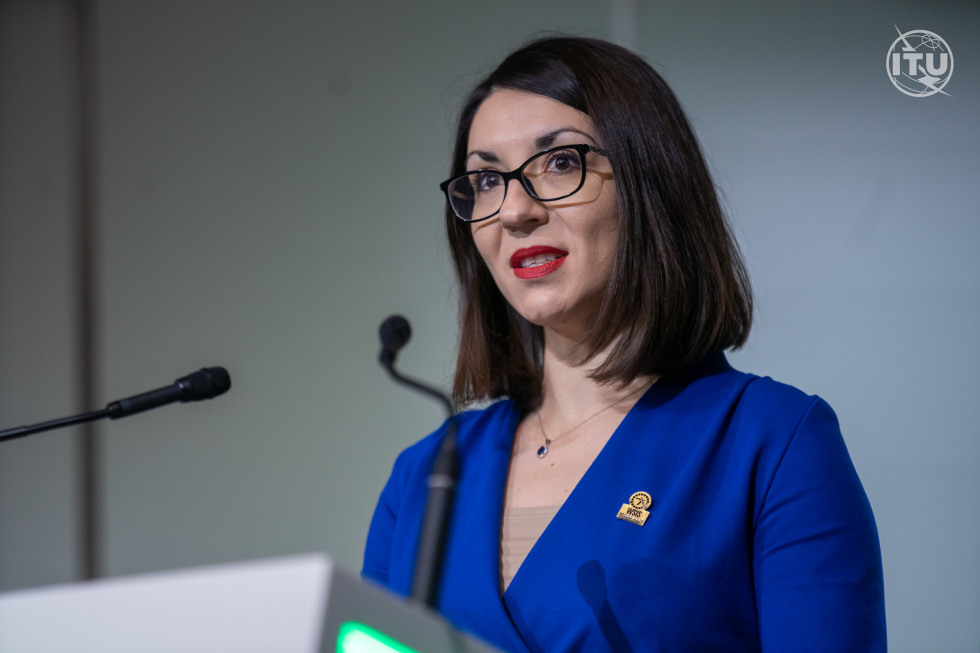Minister takes over the chairmanship of the World Summit on the Information Society

Dr Emilija Stojmenova Duh | Author International Telecommunication Union
In her address to the participants of the Summit, the Minister stressed that Slovenia is an active partner of the International Telecommunication Union (ITC) and the United Nations as a whole, and therefore we consider it a special honour to chair the World Summit on the Information Society (WSIS). "My main message is about digital progress at different speeds, which will be at the heart of the discussions over the next few days here in Geneva. The digital divide is a threat to all countries. We face inequalities in access to digital technologies, infrastructure, connectivity, and digital inclusion. We are here today because we want to take a step forward towards a digital society of equal opportunities," said Dr Stojmenova Duh, who is the first female Minister and representative of Slovenia to chair the World Summit on the Information Society.
The global forum brings together more than 1,400 participants, including many ministers, members of the parliament, ambassadors and mayors, researchers, representatives of businesses and NGOs, and ICT experts from more than 150 countries in the international community. The Minister participates in high-level strategic dialogues and a series of high-level policy meetings and will co-chair the Ministerial Round Table with Doreen Bogdan-Martin, Secretary General of the International Telecommunication Union, and will also present the WSIS Forum Awards.
In her keynote address, Dr Emilija Stojmenova Duh also pointed out that digital technologies, driven by rapid scientific and technological progress, have transformed the way we live and have enabled the creation of new solutions to some of the world's most pressing challenges, but at the same time, the digital divide is preventing a large part of the world's population, especially in developing countries, from reaching their potential. As she pointed out, many lack access to basic ICT infrastructure and services, which can lead to a further widening of social and economic disparities at a global level.
"Digital technologies, including an open, reliable and secure internet, must be accessible to everyone, regardless of age, gender, place of residence or disability," the Minister stressed, expressing her belief that internet access should be a universally recognised human right. "We also need to ensure that everyone, including women and girls, have the necessary digital competences, not only to use but also to create digital technologies. In cutting-edge fields such as artificial intelligence, only 22 percent are women. There can be no digital transformation without the knowledge of how to use digital technologies. In fact, there is no future without knowledge - there should be no doubt about that," she added. Dr Emilija Stojmenova Duh also advocated raising awareness among children and adolescents about online risks and preventing online violence and hate speech online, which is as well one of the main priorities of the Ministry of Digital Transformation.
The WSIS is organised by the International Telecommunication Union, the United Nations Educational, Scientific and Cultural Organisation, the United Nations Conference on Trade and Development, the United Nations Development Programme, and many other UN organisations.
-
Address by Dr Emilia Stojmenova Duh at the WSIS
- Address by Dr Emilia Stojmenova Duh at the WSIS (docx, 23 KB)

